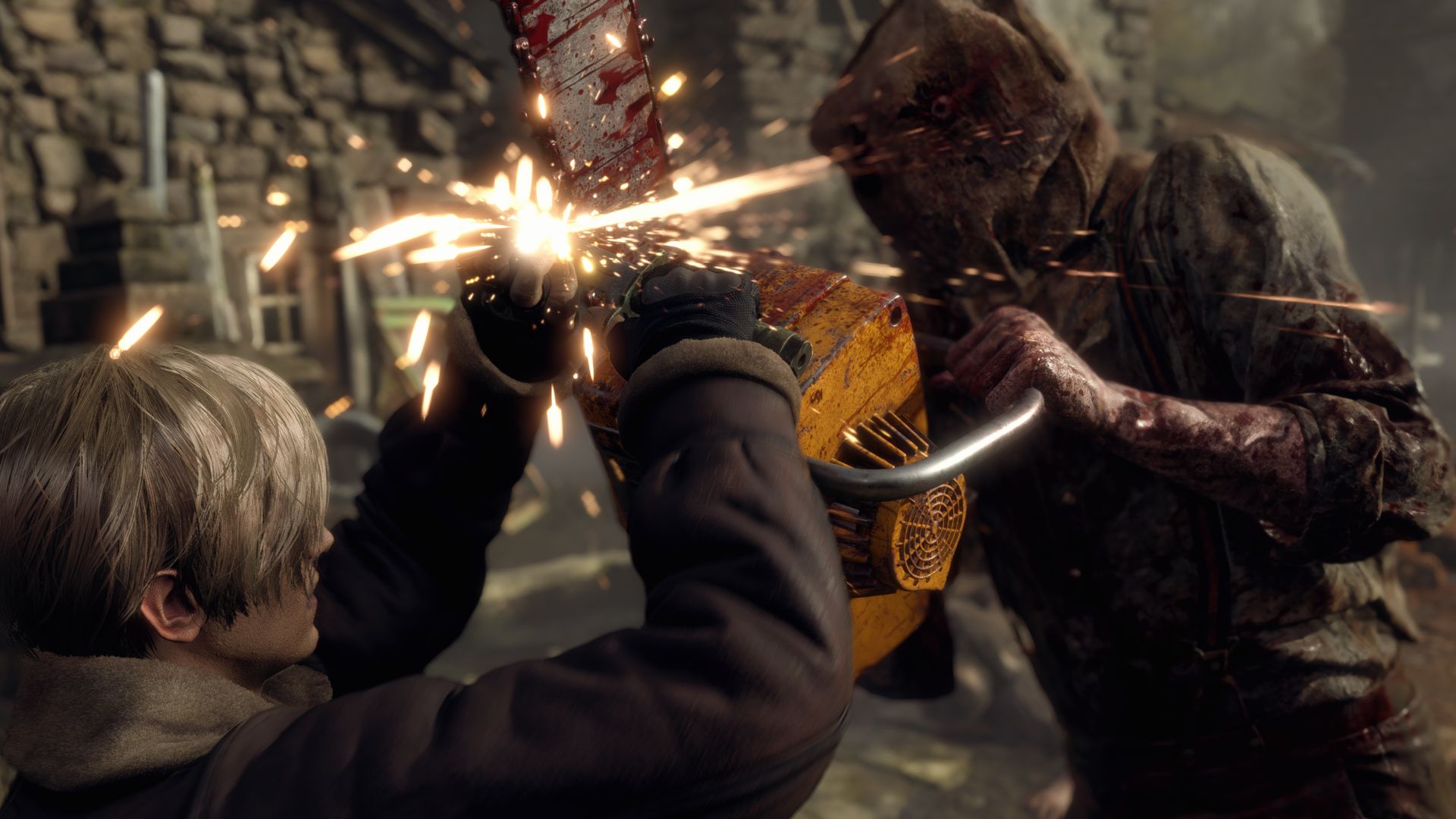
Gaming Editor Benjamin Oakden explores the enduring nature of Resident Evil 4 in anticipation for its upcoming remake
Resident Evil is a series that has benefited hugely from remakes over the years. 2002 saw the original Resident Evil (1996) gain a complete graphical overhaul, with gameplay enhancements and a new subplot, while Resident Evil 2 (1998) and Resident Evil 3: Nemesis (1999) were completely reimagined in 2019 and 2020 respectively, making them look and feel like a modern ‘triple A’ horror experience. With a remake of Resident Evil 4 (2005) set to release on the 24th March, series developers Capcom are faced with a new challenge. How do you improve on one of the best loved and critically acclaimed games ever made?
Resident Evil is a series that has benefited hugely from remakes over the years
Since it first released in 2005, Resident Evil 4 has sold over 11 million copies, a feat made easier by the fact the game has been ported to just about everything. There is a Wii version with a surprisingly effective motion control overhaul, along with ports to modern HD consoles, mobile phones, and even a version for the largely unknown Zeebo console, which was released exclusively in Brazil. All these releases make it laughable in hindsight that when Resident Evil 4 was first released, it was touted as being exclusive to the Nintendo GameCube. Director Shinji Mikami even claimed he would “cut his own head off” if Resident Evil 4 was released on a system other than GameCube, a promise he quite thankfully didn’t follow through with.

There’s good reason that Resident Evil 4 has been re-released so often, with the title being a landmark not only in the history of the franchise, but in the development of shooters as a genre. It moved the Resident Evil series from pure survival horror into a more of a horror themed action game, featuring precision aiming and a wide variety of weapons to deal with enemies in a series that had previously discouraged the player from combat. It featured a number of innovations that became standard for the third person shooter genre, most notably the over-the-shoulder camera system that would become standard during the seventh generation of consoles. Developers of games such as BioShock (2007), Dead Space (2008), The Last of Us (2013) and Bloodborne (2015) all cited Resident Evil 4 as an influence.
The game holds up remarkably well
The game holds up remarkably well if you return to the original GameCube release today. The ‘tank control’ system, which doesn’t allow the player to move and aim at the same time, will likely be a bit of a shock to players used to modern shooters, with Capcom opting to introduce new control systems in the remake. However, once you adjust to the tank controls, you realise just how well the tank controls fit into the design of the game. Forcing the player to stop before they can shoot makes them feel vulnerable and outmatched by the hordes of enemies, ramping up the game’s tension and forcing them to fight strategically. The game is so perfectly built around this control system that changing it would break the game in two- here’s hoping that the remake is able to adjust accordingly.
Forcing the player to stop before they can shoot makes them feel vulnerable and outmatched by the hordes of enemies
Although the controls may take some getting used to, it doesn’t feel like the rest of the game has aged a day. The game is wonderfully paced, featuring a good variety of weapons, levels and bosses. Through incredibly clever design, the player is always left facing just the right amount of enemies, with just the right amount of ammunition and recovery items, for Resident Evil 4 to always feel tense and challenging without being frustrating. The game will actually alter its own difficulty in real time by responding to each player’s unique play-style and skill level, an ingenious design feature that I hope is kept for the remake.

The story and characters are another element of Resident Evil 4 that make it so iconic. The writing, voice acting and cinematography is so camp and cheesy that it sometimes borders on ridiculous, but oddly works in the game’s favour. It makes the player feel like they are watching a low-budget action movie, really selling the game’s fun set pieces and leading to some occasionally hilarious pieces of dialogue. From protagonist Leon Kennedy’s (Paul Mercier) deadpan quips, to the mysterious Merchant (Mercier), to the delightfully silly child villain of Ramon Salazar (Rene Mujica), Resident Evil 4 is incredibly quotable. The plot and characters may well be the biggest piece of accidental genius in gaming, and the experience just wouldn’t be the same if it took itself seriously.
The plot and characters may well be the biggest piece of accidental genius in gaming
All of this leaves Capcom in a difficult place when trying to put together the remake- the whole purpose of a remake is to modernise a game, but if they modernise it too much, then they risk abandoning what makes Resident Evil 4 so lovable in the first place. Although there are a few annoying elements which could be tweaked, most notably the abundance of quick time events, the game holds up so well that Capcom are faced with a truly mammoth task. Given Capcom’s impressive record with Resident Evil games over the past few years, there is no reason to doubt that the remake will be a fun and enjoyable experience in its own right. But given how Resident Evil 4 is still so iconic, well-designed and replayable, they will have a hard time trying to better it.
Watch the trailer for Resident Evil 4 (2023) here:
Read more gaming retrospectives here:
All Over but The Crying: Fallout Turns 25
Comments